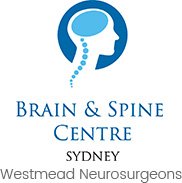Post-op Cranial Surgery Instructions
Whilst in Hospital
Day 0 – Surgery
- You will be admitted to the intensive care unit for monitoring
- You can lie in any position, as tolerated unless instructed otherwise
- You will have a collection of tubes attached including a urinary catheter, intravenous drips and drainage tubes.
- You will have TEDs Stockings on and Calf Compressors.
- Medications including antibiotics and steroids may be given.
Day 1-Post Surgery
- A brain CT scan will be performed to assess for any issues at the operative site
- Most of the attached tubes will be removed including drains, catheter and intravenous lines. Occasionally some will stay a little longer
- You will be able to mobilise with assistance and have physio twice a day
- Oral analgesia as required
- DVT prophylaxis Heparin 5000 Units injections twice a day, commence on the evening of Day 1
- Daily shower
- Regular bowel medications
Day 2 Post Surgery till Discharge
- Daily shower with antiseptic hair wash
- Wound left uncovered with simple ointment applied twice a day
- Oral analgesia as required
- Steroid medications will be weaned slowly
- Self-mobilise as tolerated and with physio twice a day
- Regular bowel medications
If Rehabilitation is required, request for bed availability needs to be made as soon as possible. There is usually a waitlist for transfer to Rehab Hospital (Hill Private, Westmead Private Rehab, Minchinbury Private, Mount Wilga, Lady Davidson, Royal Ryde Rehab)
Following discharge
- Pain from the incision site can last for up to 4 weeks, simple analgesia is usually sufficient.
- The wound is usually closed with surgical clips or non-absorbable stitches. These are removed on day 7 either whilst still in hospital or by arrangement in the office with our Practice nurse.
- You may feel some hypersensitivity and numbness around incision. Do not be alarmed, this is common during the healing period.
- Daily hair washes, full showers and personal hygiene should be attended to. There is no issues with the wound or the dressing getting wet.
- If you have developed an increasing area of redness, swelling, or have developed a discharge from your wound, please contact the practice for advice and instructions. You may be required to attend our practice or your GP for additional treatment.
If you have developed a new or worsening neurological condition, contact the practice IMMEDIATELY. You may need to have a scan prior to our assessment.




